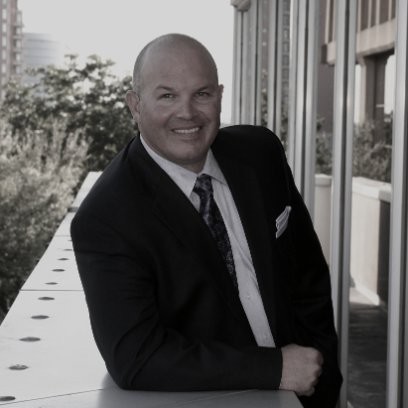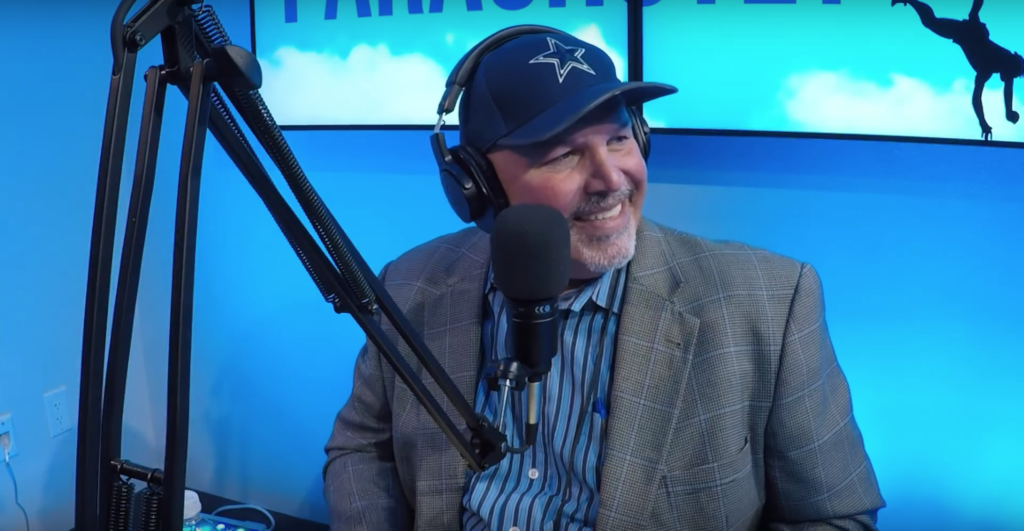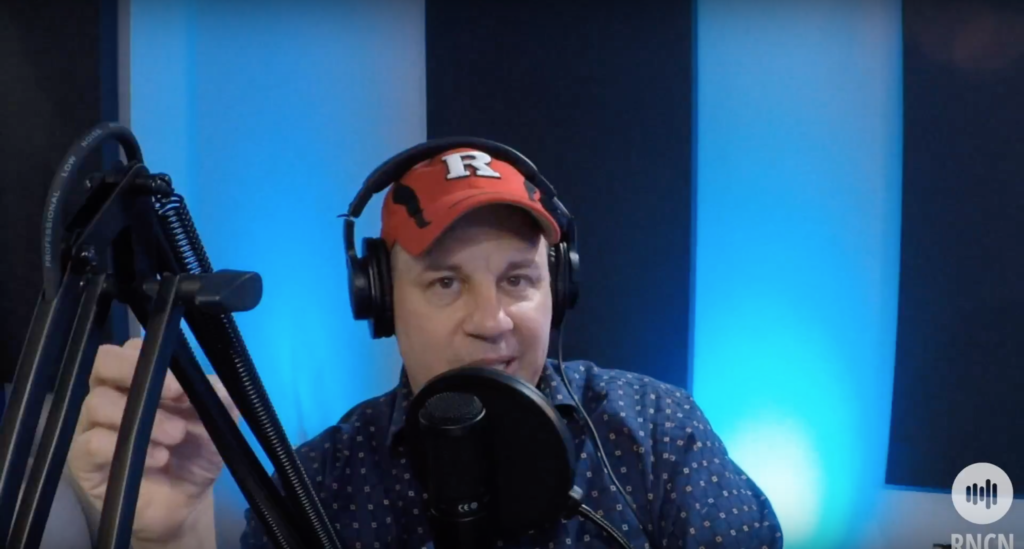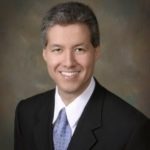Fast forward from there [to] when I was 11. My dad came home and said, ‘I had back trouble for two years. I finally went to the doctor and turns out that I’ve got cancer throughout my whole body. He ended up living for two and a half more years, and for those two and a half years, he taught us resourcefulness, business, and I always say that entrepreneurship saved my life because, after the death of my dad, the only thing I had was my work ethic and what he taught me. If it wasn’t for that, I don’t think I’d be on the show right now talking to you guys.”
LaMure then invited Sapio to tell the audience about his current business, the story of which resuming after the death of his father:
“Right after I found out the news about my dad, this guy came forward and said, ‘maybe I can help you.’ I had one conversation with this guy; his name is James O’Donnell. He was the father of my brother’s girlfriend, and he took me out to lunch and said, ‘hey, I heard you’re really good at math. Listen, I want to take you to my office and show you what I built. I’m an engineer.’ He took me to his office and said, ‘listen to me. If you study engineering and get an engineering degree, you could become a doctor, a lawyer, you could work on Wall Street, you could be a business person; it trains your brain to think in a different way.
Rutgers University gave a scholarship to the top 10 highest [SAT] math scores if you would go into the engineering school. My first year was brutally hard [with] courses I had never seen in my life, but I got through it. From that point forward in my life, I was able to think about business and everything through the lens of engineering.
All I saw w[ere] patterns in business. I’ve actually come up with 48 modules that I teach on how to grow a business which we incorporate into our holding company. I started a holding company 24 years ago; we’ve looked at thousands of companies [but] invested in 120. We look for these patterns and teach these patterns to the companies that we invest in.”
It was never a profitable business until someone approached him and questioned why he hadn’t created a program to teach these modules. That’s when Sapio went behind a camera and created the “Business Finishing School” program. The “Business Finishing School” offers boot camps twice a year, through which Sapio has taught thousands these principles over the past nine years.
LaMure then asked Sapio to show the audience his cell phone. Put in the words of LaMure, “that is not an engineer’s phone.” His comment spawned a discussion of Sapio’s search for simplicity in life:
“Every single thing I do in my life I put through the lens of simplicity. How can I make my life as simple as possible? How can I make my business as simple as possible? How can I make my relationships as simple as possible? When I look around and see people spending four hours a day on their smartphones, [it] wasn’t simple to me.
I would say I’ve taken it a step further. Going back to the patterns, when I met my wife 14 years ago, I said, ‘honey, do you mind, so we don’t have to think about it, that we go out to dinner at 7:30 every Monday night?’ Everything falls into place when you have those rhythms and habits, and I do that across my day, my week, my month, my year. It simplifies everything. I would add one more quote that I love from Bill Gates; he said, ‘good businesses are nothing more than a series of rhythms and habits. Bad businesses are nothing more than no series or habits.”
Regarding how Sapio makes decisions in his business and personal lives, he explained his principle of only making decisions that align with his values:
“I went to a log cabin, figured out my values about 15 years ago, and said, ‘these are the values for the rest of my life.’ Every minute that you spend in your life in which you’re not clear what your purpose is and you’re not clear what your values are is a minute that you’re ripping off the world because the world wants to know a fulled expressed human being, but very few people have taken the time to figure out, ‘here’s my purpose.’ My purpose is to inspire entrepreneurship.
After all that was figured out, I was completely energized because every decision after that is an easy decision. I will assert that very few people are clear on their purpose, their values, and their objectives, so how the hell can you tell the difference between an opportunity and a distraction?”
Sapio later went on to describe his experience interviewing 40 billionaires:
“In 2008, when everything went to hell in a handbasket, I got really nervous and said to my wife, ‘I want to interview 10 billionaires that have been through tough times.’ [I] ended up interviewing 40 billionaires, and what I realized is every single one of them, including Warren Buffet, was really good at saying no, I didn’t see cell phones, I saw people that were completely committed to their purpose and values, and nothing got in the way of that.






